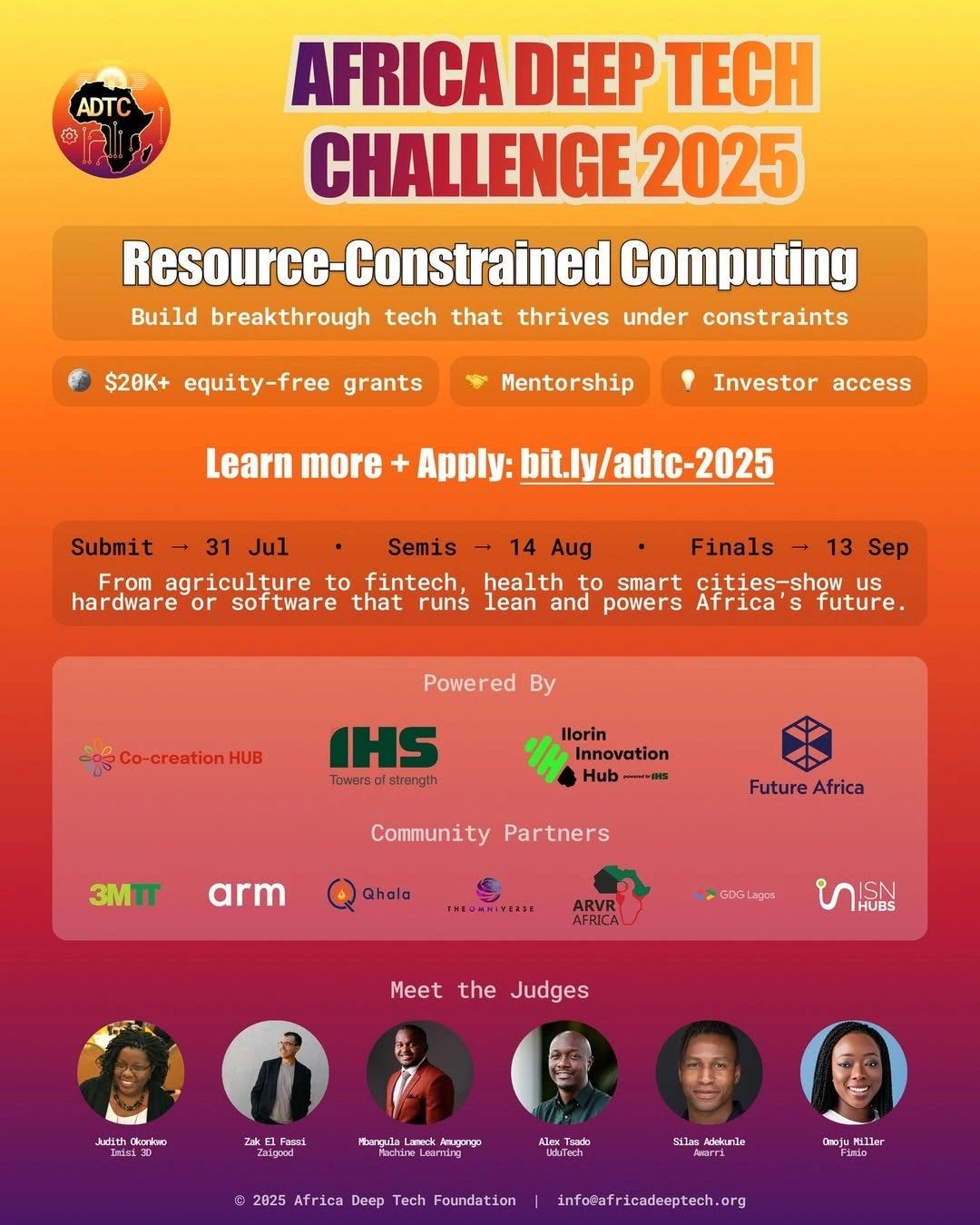The state of the embedded systems ecosystem in Nigeria and Africa
Framed by the personal journey and projects of Magus Emenuga.
The meeting featured Nigerian embedded systems entrepreneur Magus Emenuga, who shared his journey from a passionate hobbyist to a professional hardware developer. His story highlighted the significant systemic challenges facing the hardware sector in Africa, including a theoretical education system that lacks practical application, a heavy reliance on Chinese supply chains for components and manufacturing, and a stark funding and support gap compared to the software industry.
The discussion, involving over a dozen experts, evolved into a strategic conversation about building a robust deep tech ecosystem. Key themes included the debate between developing technology from first principles versus using existing open-source platforms, the critical need for engineers to adopt a business mindset, and the necessity of creating local infrastructure like manufacturing facilities and innovation labs. The session concluded with a consensus that strengthening the hardware sector is fundamental to the continent's technological sovereignty and economic growth.
Detailed Discussion Points
1. The Innovator's Journey (The Story of Magus Emenuga):
Origins & Motivation: Magus described how his curiosity, nurtured in the creative environment of Aba, Nigeria, drove him to teach himself electronics. He contrasted this with his formal engineering education, which he found to be overly theoretical and disconnected from real-world application ("secondary school in an amplified version").
From Hobby to Business: He transitioned from building projects in university, taking on international product development for startups, primarily using LinkedIn to showcase his work and attract clients.
The Mobile Phone Project: The centerpiece of the discussion was a mobile phone he and his team designed and built. The primary motivation was not commercial, but to create a portfolio piece to demonstrate their capabilities, as Non-Disclosure Agreements (NDAs) prevented them from showcasing client work.
2. The Hardware vs. Software Dichotomy:
A major recurring theme was the disparity between the hardware and software ecosystems.
Software's Advantage: It was noted that software has a lower barrier to entry (requiring only a laptop, data, and power) and has established, fundable business models (e.g., FinTech), which has attracted the vast majority of investment.
Hardware's Challenge: Hardware is capital-intensive, requiring significant investment in components, prototyping (often from China), and machinery. This makes it a higher-risk, less attractive area for many African investors.
3. The OS & "First Principles" Debate:
A pivotal discussion emerged from Magus's plan to build a custom operating system (OS) for his phone. He reasoned that a lightweight, custom OS would allow the device to run on cheaper hardware, lowering the final cost while enabling unique features for the African market. However, several participants argued against reinventing the wheel, advising the use of a free, open-source OS like Android's AOSP to focus resources on business development and get to market faster. Countering this pragmatic view, others stressed the long-term strategic importance of learning to build complex technology from "first principles," arguing that such foundational knowledge is essential for the continent to achieve true digital sovereignty.
4. Ecosystem & Infrastructure Challenges:
The group identified critical infrastructure and supply chain challenges facing Africa's hardware ecosystem. A primary issue is the near-total reliance on China for component sourcing and PCB manufacturing, which results in long lead times, high costs, and project-stalling shortages. While some advanced local contract manufacturing facilities, like SMT lines in Kenya, exist, they are not widely known or utilized, and the toxic nature of raw PCB fabrication makes it difficult to replicate locally. This dependency is further compounded by a severe "lab deficit," as one participant highlighted by contrasting the continent's few makerspaces with China's 500,000, a gap that fundamentally hampers the hands-on innovation and skill development needed to build a self-sufficient ecosystem.
5. The "Business Hat" Imperative:
Multiple speakers stressed that technical capability alone is insufficient.
Hardware innovators must think like businesspeople: identify a clear market need, develop a go-to-market strategy, and secure funding.
Key Action Items For the Africa Deep Tech Community:
Convene a Hardware Commercialization Group: ADTC to organize a follow-up meeting for interested parties to specifically discuss collaboration on commercial hardware projects and strengthening the ecosystem.
Promote Ecosystem-Building Initiatives: Encourage participation in and awareness of the Africa Deep Tech Innovation Challenge as a platform to foster hardware-software collaboration.
Support Local Component Vendors: Identify and engage with local component suppliers (e.g., Hub 360) to understand their challenges and explore ways the community can support them in expanding their inventory (especially for SMD components).
Advocate for Deep Tech Labs: Champion the need for establishing and funding more physical hardware labs and makerspaces across the continent to serve as hubs for innovation, training, and collaboration.
Check out the Africa Deep Tech Challenge focused on Resource Constrained Computing. Win $ 20 K+ in prizes and Grants
Register here: https://bit.ly/adtc-2025





